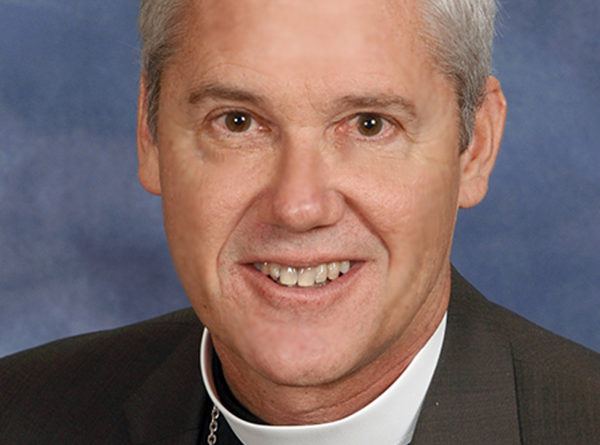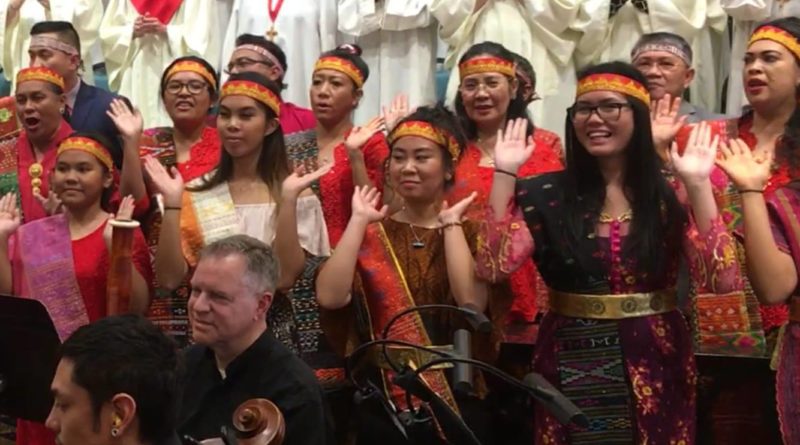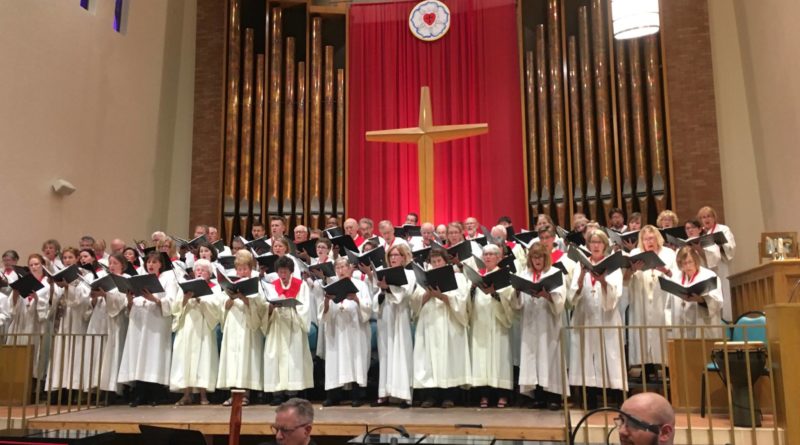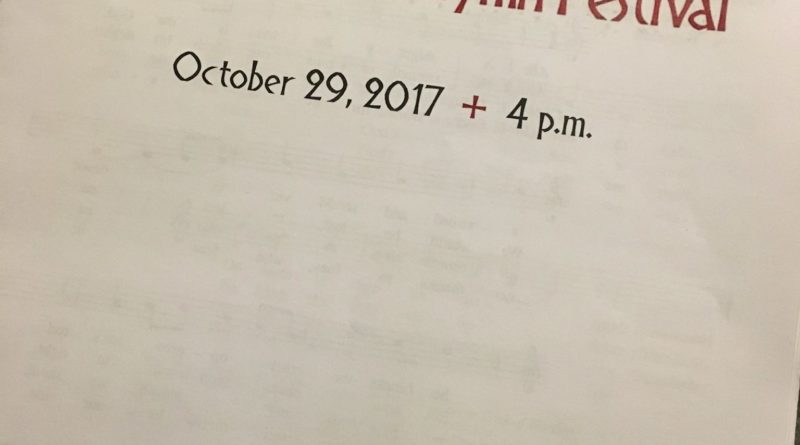Mission Stories: The Body of Christ Is GLOCAL by Jim Gonia
The following reflection is one of three that I shared as part of a hymn festival commemorating the 500th anniversary of the Reformation. Held at Augustana Lutheran Church in Denver on October 29, 2017, this event focused on God’s re-forming work in the life of the Church – Then, Now, Always.
This particular reflection is based on Romans 12:2-5, 14-18 and offers my perspective on what it means to live as part of Christ’s Body in the world. My vision of the Church has been indelibly shaped by my global experience, including ten years as a missionary of the ELCA in Madagascar and three and a half years serving our churchwide Global Mission Unit with responsibility for relating to partner churches and organizations in seven West African nations as well as Tanzania and Madagascar.
In my current role as a bishop, I seek to remind the people I serve that the Body of Christ is always GLOCAL – at once global and local. Our local ministry and witness must always be set in the context of our global relationships, reflecting the joys and challenges facing every part of the Body. At the same time, we are privileged in our local settings to represent the fullness of a global Church with its many diverse gifts and perspectives.
The NOW portion of our Reformation Hymn Festival, from which this reflection is taken, included music from across the global church and featured the choir of our local Batak Indonesian congregation.
NOW: Christ’s Body – God’s both/and people
We, who are many, are one body in Christ.
Let’s not kid ourselves, this way of framing things is not going to get you very far in our “us vs them”, “with me or against me”, “my tribe is better than your tribe”, “my country first” sort of world. Paul’s mind-renewing vision for community that comes as part of our life in Christ – this vision of community in which our God-given diversity, individually and globally, becomes a gift and the source of a holy interdependence that does not pit one people against others – this is not only counter-cultural, it is potentially dangerous. It can get you accused of a lack of loyalty for “your own”, it can get you booted off the island. Clearly, there is a cost to being part of God’s both/and people in this either/or world.
And yet look where our insistence on either/or has gotten us: war and bloodshed across the globe, deep divisions in this nation, suspicion and rejection before we even speak with one another, an inability to find a common language to share our identity and values. The world of either/or is not a pretty one. Nor is it hopeful. Either/or thinking and living is responsible for those very headlines we dread to encounter every time we wake to a new day. Our either/or living has relegated some of our beloved sisters and brothers to perpetual life on the margins and kept those of us in places and positions of advantage from recognizing our own privilege and the impact our privilege has on our neighbors.
Now more than ever our call to be Christ’s Church, to model what Martin Luther King Jr called the beloved community, now more than ever, this matters. If we in the church cannot demonstrate the beauty of God’s both/and, where will it be learned? If we, as disciples of a Lord who crossed every barrier and boundary for the sake of beloved community, if we cannot bridge the divides, love the stranger and outcast, embrace one another in our wonderful diversity, who do we expect to lead the way?
So how do we get there? It begins by holding one another accountable to the life that is born in us through God’s own grace, a life that is re-formed by the power of the Holy Spirit. The Apostle Paul describes the quality of our re-formed way of living in this either/or world:
Bless those who persecute you; bless and do not curse them.
Rejoice with those who rejoice, weep with those who weep.
Live in harmony with one another; do not be haughty, but associate with the lowly; do not claim to be wiser than you are.
Do not repay anyone evil for evil, but take thought for what is noble in the sight of all.
If it is possible, so far as it depends on you, live peaceably with all.
Can’t be done, you say? But look, it’s already here. Not perfectly, of course. But where else do you see people of all tribes and nations, from all walks and stations of life, those holding a diversity of opinions and perspectives, those from the margins and places of privilege … where else do you see such a diverse cross-section of community gathered together for prayer and praise, washed in the very same baptismal waters, joined around the same Table to share a meal of grace, sent together as God’s ambassadors of reconciliation into the world?
We, who are many, are one body in Christ.
There is no better time than now to claim this holy truth.
The Rev. Jim Gonia was elected Bishop of the Rocky Mountain Synod of the ELCA in 2012. He served as a missionary in Madagascar from 1988 to 1998. From 1998 to 2009 he was called as the associate pastor of Atonement Lutheran Church in Denver. Prior to his election as bishop, he served the ELCA’s churchwide ministries as Global Mission Area Program Director for West Africa, Tanzania and Madagascar. In this position Bishop Gonia was responsible for overseeing the ELCA’s programs and relationships with Lutheran church bodies and partners in nine African countries.
Bishop Gonia received a Bachelor of Arts degree from Valparaiso University in Valparaiso, Ind., in 1982; a Master of Divinity degree from Luther Northwestern Seminary (now Luther Seminary) in 1988; and a Master of Theology degree in Islamic studies at Luther Seminary in St. Paul, Minn., in 1997.
His wife, Kim, is an ordained pastor in the ELCA serving a “Called to Common Mission” call at Intercession Episcopal Church in Thornton, CO. They have three children, all graduates of Lutheran universities: Caroline, Mallory, and Peter.




